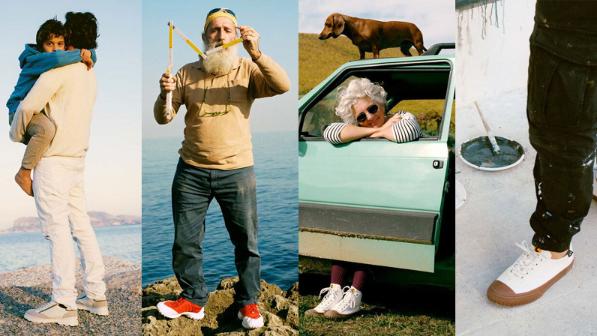How Camper has achieved new customers with omni-channel retailing
'Omni-channel retail' has become the new buzzword in e-commerce. More connected than multi-channel communication, omni-channel marketing is the idea that a company should have a seamless relationship with all their customers, constantly pre-empting their next choice and steering them towards another purchase through a variety of touch points.
A few minutes chatting to Enar Lazcano Alberdi, COO of Camper, confirms how successful that approach can be. This is a company that has truly grasped the opportunities of omni-channel selling - and it’s not only about the digital side of things. For Camper, the power of a hybrid omni-channel strategy is in the relationship it helps to establish between the brand and the consumer – regardless of whether that contact is made physically or digitally. And for a family-owned company like Camper that relationship is in its DNA.
Lorenzo Fluxa founded the business back in 1975 - and he did it on what was at the time quite a revolutionary concept. Back in the 70's, the typical growth model was that you created a product, it built a following and that became, over time, your brand.
Lorenzo spun the model on its head. Spain has always been synonymous with high quality leatherwork, and the footwear industry is one of the country’s strongest sectors. He saw the opportunity to develop a counter-culture brand for, as Enar puts it, ‘people who didn’t just want brown shoes’. Camper, which means ‘farmer’ in Catalan, would be a design-led footwear brand focused on innovative styles. Branding and communication came first, production and sourcing followed. And it worked. The business grew steadily in Spain and France, developing a following of devoted fans.

But the watershed moment for Camper came in the mid 1990s with the launch of the iconic Pelotas shoe. The design caught the imagination of shoppers across Europe and Asia, and to-date around 15 million pairs have been sold worldwide.
Today, Camper has stores in more than 60 countries, over 1000 employees and an annual turnover of around USD$200million. Its website receives more than 1 million hits every year and that number is growing as the business ventures into new markets in China and Hong Kong.
In Camper’s omni-channel world, the relationship between the physical and digital touchpoint isn’t simply complementary. They are interwoven, meshed. The digital environment can be accessed via the store, and the store via the internet. Enar explains;

The principles of always-on omni-channel retail are reflected throughout the Camper organization. Enar doesn’t see the stores as simply outlets. They are a vital conduit of CRM where the staff can gather data from visitors and start building that all-important relationship with the brand. Enar told us:
This makes perfect commercial sense. Store staff have a clear understanding of each season’s product line as well as the typical Camper customer. Obviously, CRM technology plays an important role in managing and developing the omni-channel customer relationship, but the balance between technology and people is also a key factor.

As the omni-channel influence grows, the importance of logistics becomes ever greater. Camper prides itself on the quality of its customer service - whether that’s online, in-store…or on the doorstep. “Cost is important but our shoe is not a €50 shoe. Our selling price is €150. Someone who pays that kind of money expects a certain, premium level of service”. Enar goes on to describes the ‘Global Stock’ model the business deploys to keep those customers satisfied.
This flexibility is key - not only to Camper’s omni-channel ambitions but to any online seller who sees their future in this holistic sales environment. No longer do stores, wholesalers and warehouses hold just their own stock for their own local customers. In today’s demand-driven e-commerce world, as Camper shows us so evidently, stock has to move to where it’s needed - efficiently and profitably. This isn’t a new strategy for the company, but they were one of the first brands to realize the opportunities of switching to a fluid stock strategy.
Which is why a product like Parcel Connect is vital for businesses embracing the omni-channel challenge across European markets. As a business owner, you will pour your time and energy into ensuring your communications to the customer are seamlessly aligned across the sites they visit, their social media feeds and your sales channels. But ultimately, reliable and cost-efficient fulfilment will make – or break – their experience, a point that Enar understands well…
As e-commerce matures into the new era of omni-channel marketing, partnering with a provider who can deliver market-leading service levels across 28 countries, using best-in-class local carriers may just give you the head-space you’ll need to make it work. Just as Camper have.
